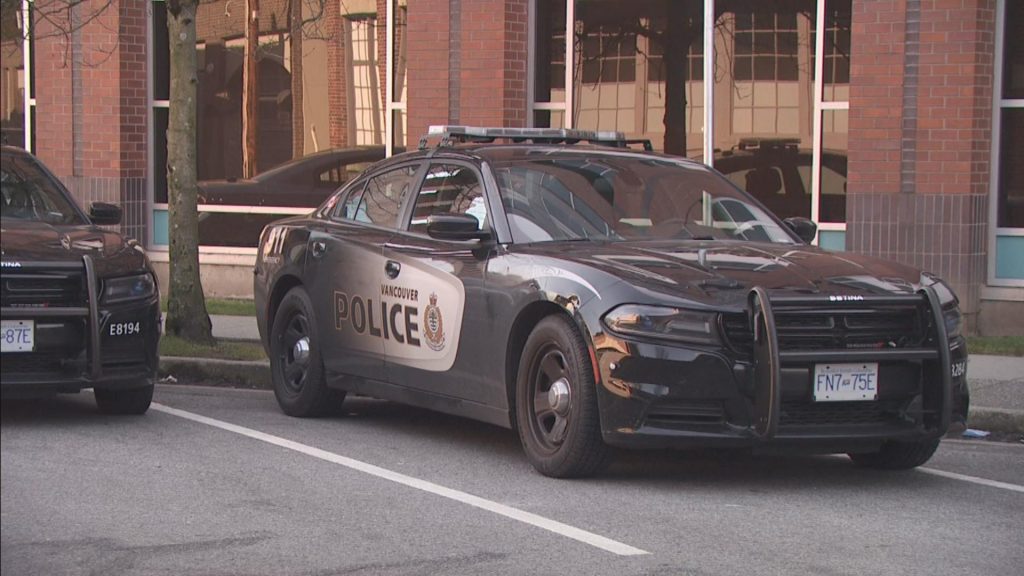
Residents are concerned that the COVID-19 pandemic has brought a spike in violence to the streets of Vancouver, while police confirm an increase in hate crimes linked to anti-Asian racism.
“So far in 2020 the Vancouver Police Department (VDP) has identified 77 hate associated police files,” said Deputy Chief Howard Chow. “This is up from 51 from the same time in 2019, and this increase is driven largely by anti-Asian incidents.”
Police released video that shows a man walking up to a young Asian woman on Granville St. and punching her in the face. Another video shows a man grabbing an elderly Chinese man and throwing him out of a convenience store.
Suspects were identified in both cases.
The famous lion statues that mark the entrance to Vancouver’s Chinatown neighbourhood were defaced with racist graffiti that blames COVID-19 on Chinese people.
A 27-year-old Indigenous woman was also punched twice after being mistaken for an Asian person while she was out walking her dog.
Officials say crimes like these were fueled by COVID-19.
“Hate is insidious. It spreads like a virus and impacts us all,” said Chow.
After the dismantling of a tent city in Oppenheimer Park, BC Housing moved many of those people to hotels near the Granville Strip.
“We’ve noticed its been increasingly more dangerous,” said one area resident.
Christian Wyse, who’s been homeless for a few months on the Downtown Eastside, says he’s also noticed a difference since COVID -19.
“Sometimes there’s people that get a little bit, their minds get a little bit warped on the various drugs they are taking so you, you know, sometimes there will be guys freaking out waving weapons around and what not. You got to do what you can to keep to keep them calm and make sure you don’t get yourself hurt,” he said.
Lorelei Williams also lives near downtown Vancouver and says she has encountered violent people in her neighbourhood since the pandemic began.
“There has definitely been a rise in violence in my neighbourhood. I mean just the other night I was walking my dog and I was walking her and this guy was coming towards me being very aggressive, being very loud, and just as I was going to turn the other way I noticed he went in the other direction so I turned and I watched him. He was hitting all the cars with objects with his hands, and he was being aggressive with the people he was walking by and he was hitting all the windows on the businesses.”
Dr. Jane Buxton, harm reduction lead at the Centre for Disease Control, says in the month of April there were 113 overdoses.
“People may be getting more anxious. The drugs may be more toxic, so people are getting more concerned. We’ve seen more overdoses, we had the highest number of overdoses responded to by the ambulance service the last cheque issuance week than we’ve seen for a couple of years, so there is a combination of things that are happening.”
Robert Bonner, another Downtown Eastside resident, says people are becoming more erratic and frustrated the longer the pandemic lasts.
“I think more people are arming themselves with stuff and there just doesn’t seem to be that cohesiveness amongst the people,” he said.
“Like everybody has what I call hungry eyes. Everybody’s got it. You just walk down this street and everybody, you see it in their eyes, they are hungry because they cant get help with addictions – not enough food, no place for them to stay. They say well go self-isolate, well where are these people supposed to go?”
Police say they are continuing to increase patrols but warn citizens to be aware.









